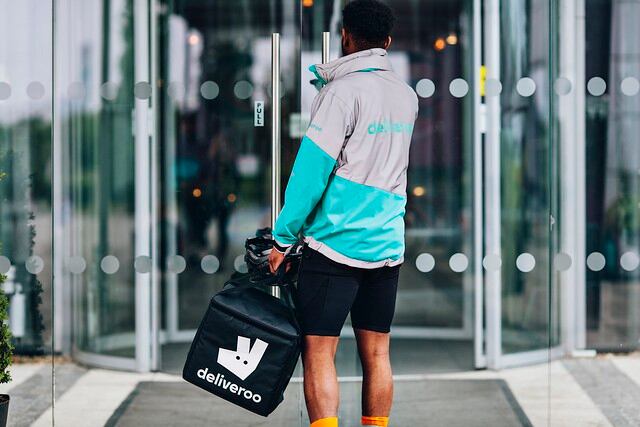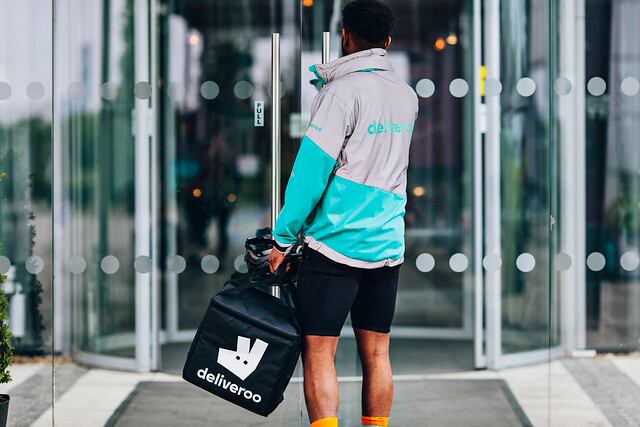From cloud kitchens to delivery solutions and robotics, advances in food tech are helping to redefine the relationship between consumers, food makers and their supply chains.
Technological developments are offering up new ways to meet the evolving expectations of consumers while also addressing big picture questions around health and sustainability.
Investment patterns point to where venture capitalists and corporates alike see the greatest potential for game-changing innovation – and interest in the sector continues to grow.
According to data from Tracxn, food tech innovators saw a jump in investment levels during the second quarter of this year (April-June). Using its technology platform tracking over 30 million companies to monitor deal-making and start-ups globally, Tracxn provided FoodNavigator with data on the food tech investments made in the Europe, Middle East and Africa region.
Delivery continued to attract the big-ticket investments, with Amazon’s $575m investment in Deliveroo leading the pack. Online platforms to order, deliver, promote and manage food production accounted for the lion’s share of investment.
But other interesting areas of development included Pazzi, a pizzeria that has a robotic kitchen, and Karakuri, the manufacturer of automated robotic food preparation system. Automation has the potential to make food production more personalised, faster, more cost-effective and safer.
Q2 investment round-up
Big Bet #1: Deliveroo

UK food delivery start-up Deliveroo attracted the most cash this quarter, with a $575m investment round lead by US e-commerce giant Amazon.
Deliveroo has raised $1.53bn to date, which it said it would invest heavily in expanding the company's tech team at its UK headquarters, expand further to reach new customers, and continue innovating through its delivery-only super kitchens, 'Editions'.
Amazon wants to gain a greater foothold in the UK food market. It currently sells food in Britain through its Amazon Fresh, Amazon Pantry and Amazon Prime Now services and has a wholesale deal with supermarket Morrisons. But it faces stiff competition from the likes of Ocado as well as the well-developed online sales from supermarkets like Tesco and Sainsbury's.
The investment in Deliveroo aligns with Amazon’s strategy of investing in, or acquiring, businesses that are supportive or complementary to its wider offering, according to Nick Carroll, Associate Director of Retail at Mintel.
“Amazon did go down the route of its own third-party takeaway service with the launch of Amazon restaurants in 2016, but the intense competition in this market saw it shut the service last year,” Carroll told FoodNavigator.
“However, takeaway service is still an important growth area in the world of delivered goods, and it is logical that Amazon would want to continue to be part of the market – although how large the investment is or how great its involvement in the business is yet to be seen.”
For Deliveroo such investment is crucial to help it grow in a highly competitive marketplace, particularly one that is dominated by a single player, he added.
Data from Mintel’s Attitudes Towards Home Delivery and Takeaway – UK Report (February 2019) found that of the third (34%) of consumers who ordered takeaways using a third-party delivery services, 86% used Just Eat, 23% used Deliveroo and 18% used UberEats.
Big Bet #2: Wolt

Wolt, the Helsinki-based food delivery service, raised $130m in new financing through a Series C round led by ICONIQ Capital.
The fresh capital will be used to continue investing in growth and expansion, the company said. Importantly, CEO Miki Kuusi stressed, the Finnish start-up is building a business model that will be viable in the long-term.
“The online food delivery market is estimated to grow globally from $35bn today to $365bn by 2030. This is a massive opportunity across all geographies for companies like Wolt to tackle. However, while virtually everyone operating in this market can show extremely strong growth, it is incredibly difficult to do this while also building a viable business for the long-term.
“This is what Wolt focuses on – building the most efficient company in food delivery. This new round of financing is testament to how far we’ve come in that regard, and how much there is still to do.”
In just over a year, Wolt has grown its business from operations in four countries and 10 cities in the Nordics to a total of 15 countries and 50 cities across EMEA today.
Wolt’s solution to food delivery is based on its proprietary technology. The tech group’s unique platform optimises logistics in real-time, allowing Wolt to deliver food more efficiently.
“We were attracted to the company’s compelling operating model, with exceptional efficiency and unit economics. We are looking forward to working with the fantastic Wolt team, which is delivering rapid growth and expansion in the global food delivery industry while building a robust and sustainable operation for the long term,” said Greg Stanger, General Partner at ICONIQ Capital.
Wolt was founded in Helsinki in 2014. Today, it employs over 450 people. Wolt works with more than 5,000 restaurants and 10,000 couriers partners across 50 cities.
Big Bet #3: DayTwo
Israeli personalised nutrition group DayTwo completed a $12m Series A round of financing.
The microbiome-health management innovator secured the backing of Johnson & Johnson Innovation (JJDC), Seventure Partners' Health for Life Capital fund, Mayo Clinic, co-founder Marius Nacht, and other private investors.
The investment brings DayTwo's total funding to $17m, and will help the company to “broaden and deepen its lead” in “evidence-based, clinically proven and actionable science of the gut microbiome”.
Proceeds will be used to expand the company's product, engineering, and data science teams in Tel Aviv, Israel and San Francisco, USA. In addition, DayTwo will deepen its clinical research with the Mayo Clinic and other gut-microbiome clinical research partners.

DayTwo claims to be the first company to develop a method to accurately predict an individual's glycemic response to specific foods and food combinations using microbiome data and other clinical factors. This evidence-based approach to nutrition enables DayTwo to bring personalised nutrition to market, the company said.
"This ability to go beyond the informational offerings in the market, which are neither evidence-based, clinically proven, or actionable, makes DayTwo different and special. DayTwo will help people act upon a healthier, personalised diet, based on accurately predicting postprandial glycemic response," said Nicholas Chia, professor of biophysics & microbiome at the Mayo Clinic in Rochester, Minnesota.
DayTwo's personalised nutrition offering is based on the original research led by Professors Eran Segal and Eran Elinav from the Weizmann Institute of Science in Israel, and published in the scientific journal Cell. Segal and Elinav found that by profiling an individual's gut microbiome and leveraging machine learning, they can accurately predict an individual's post-meal blood sugar response for unique foods and food combinations.
For consumers, DayTwo offers a cloud-based, first-of-its-kind, proprietary diet and nutrition planner, that enables individuals to get personalised scores for specific foods and food combinations based on their own gut-microbiome profile and other personal parameters.
"We've just scratched the surface of how powerful the microbiome is to support personalised diet, nutrition, and chronic condition management, to enable our customers to have the ability to live a full, happy and healthy lifestyle," said DayTwo Chief Executive Officer Lihi Segal.
"DayTwo has brought actionable, evidence-based science down to a mobile app, to make personalised nutrition easy and convenient for the first time. This enables DayTwo to impact the lives of hundreds of millions of people who struggle with diet and nutrition-related health risks every day."




